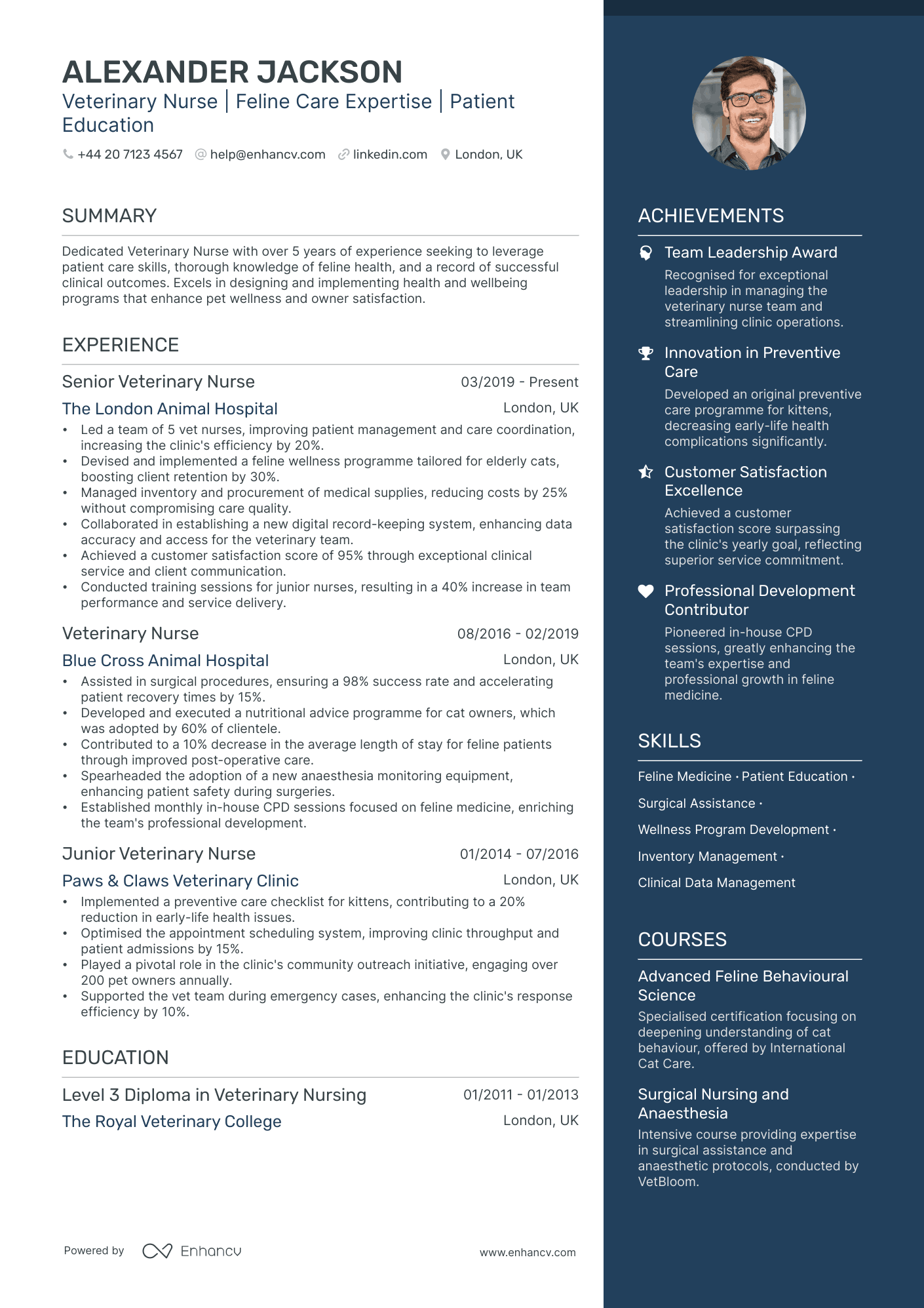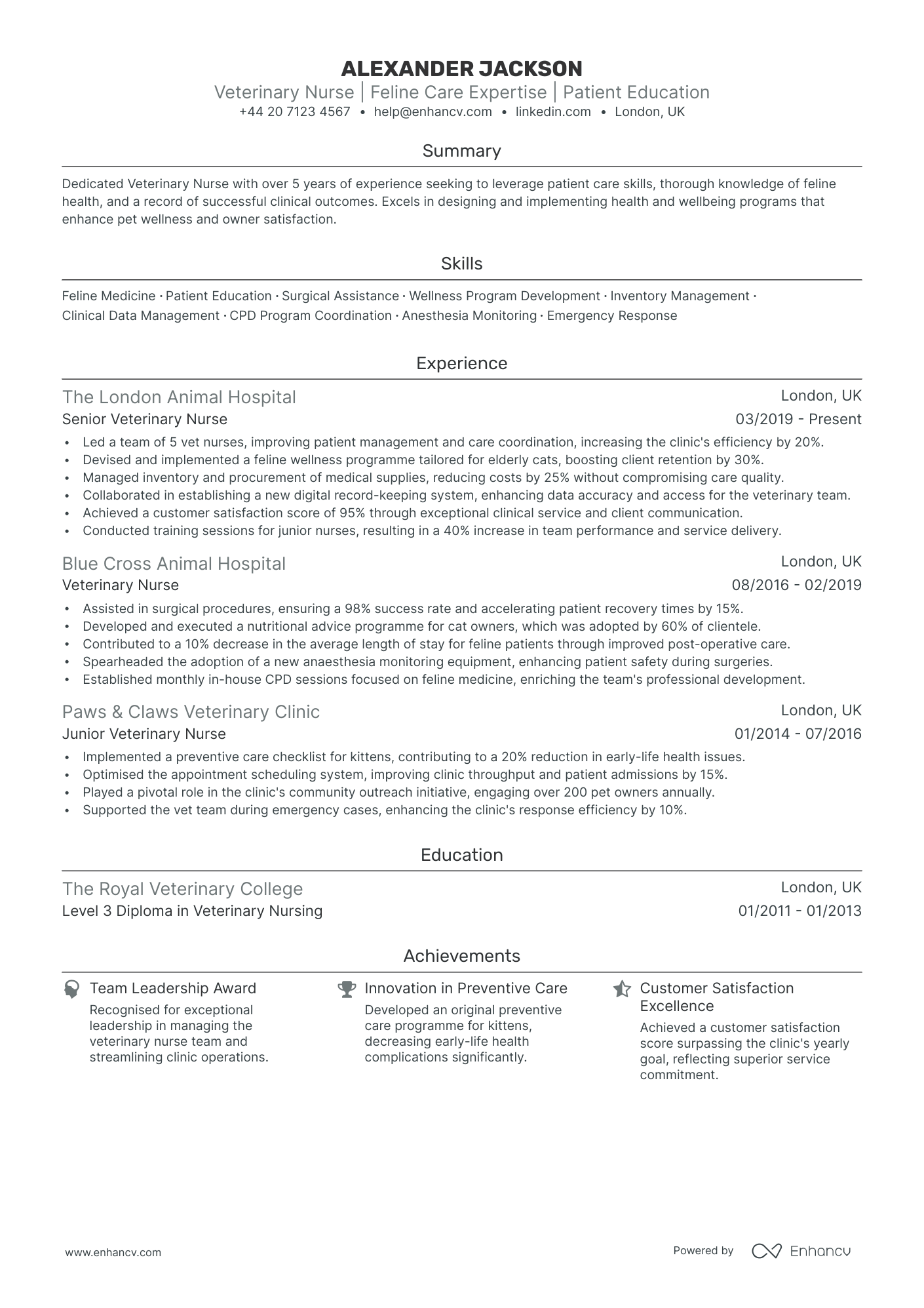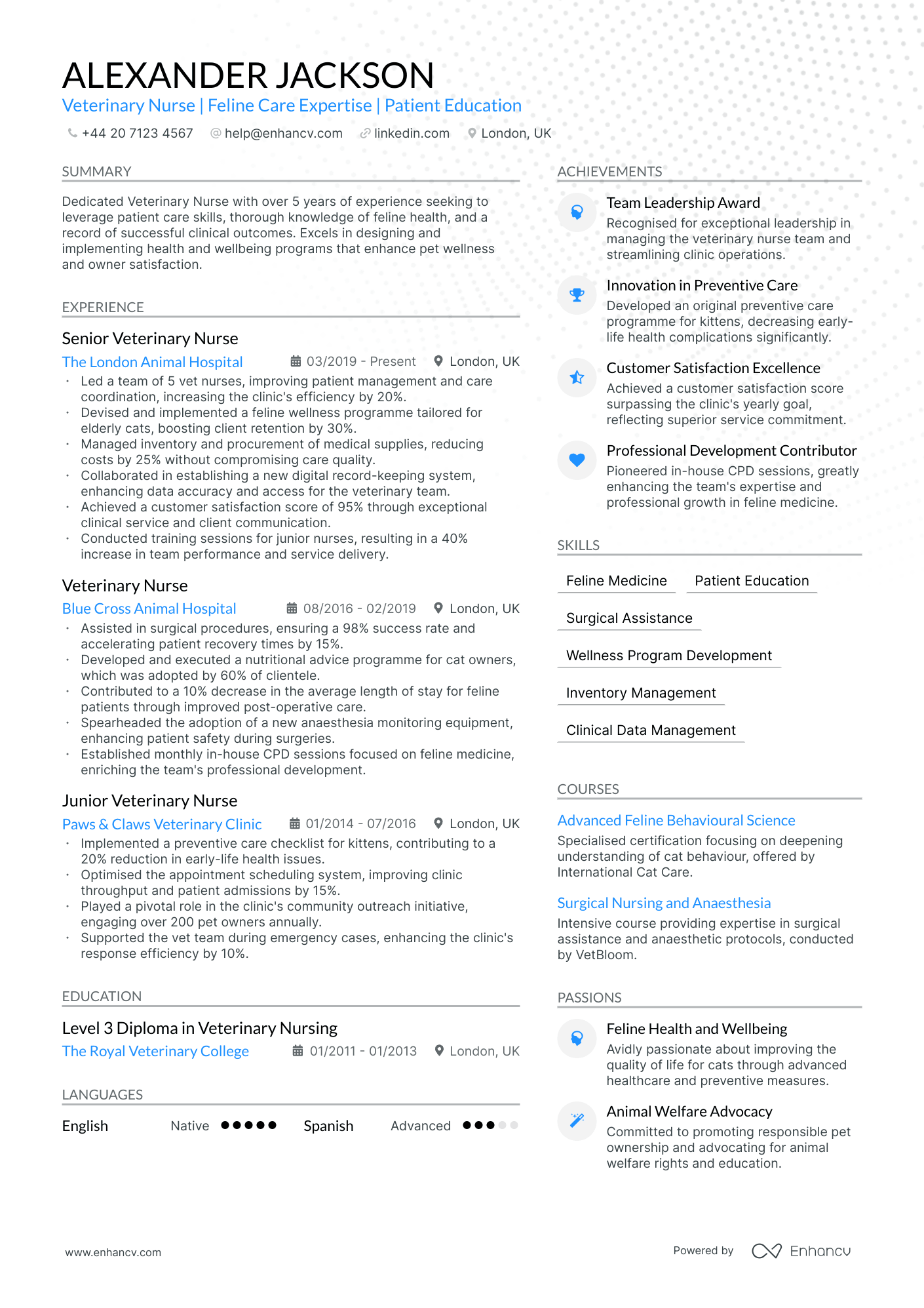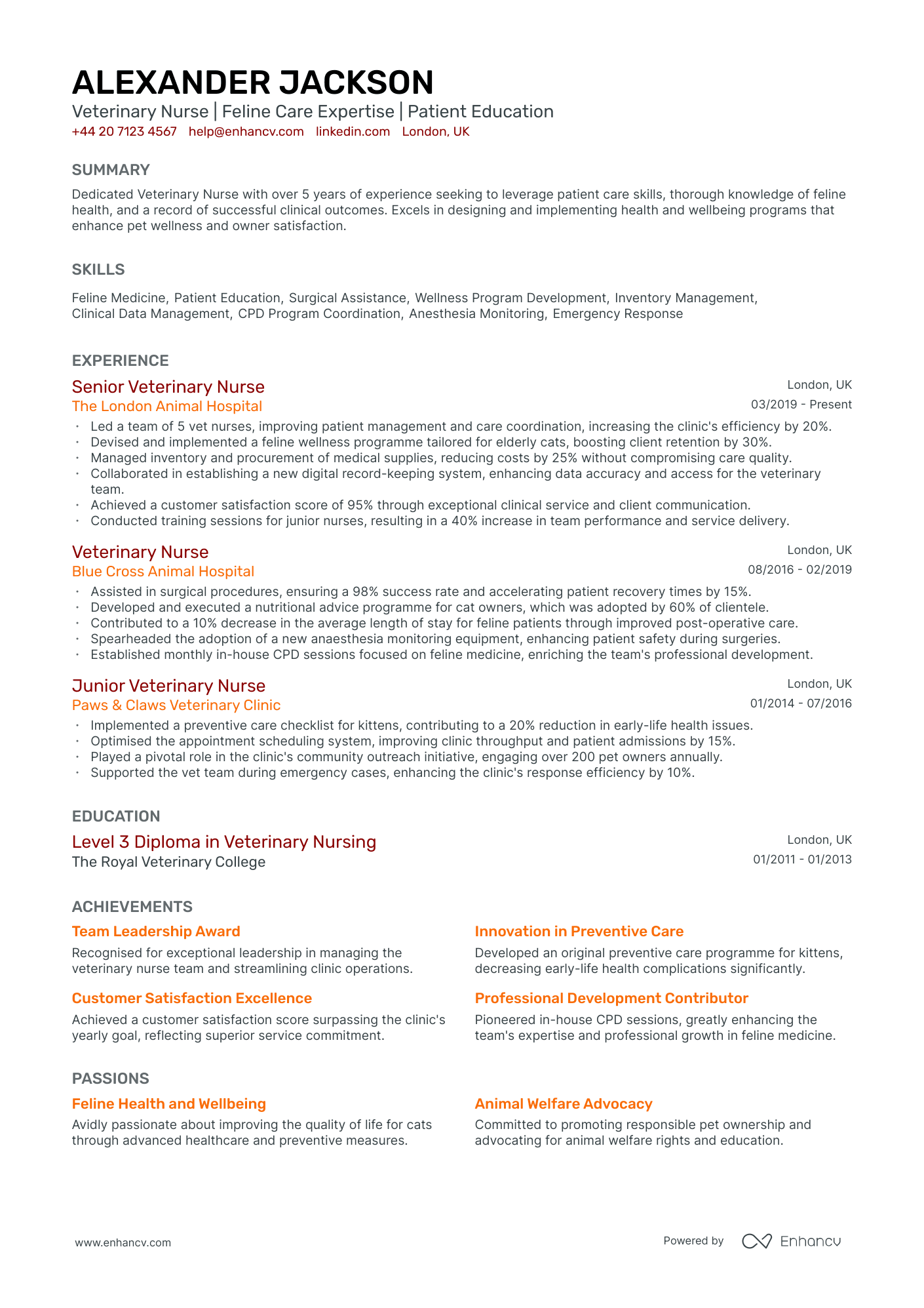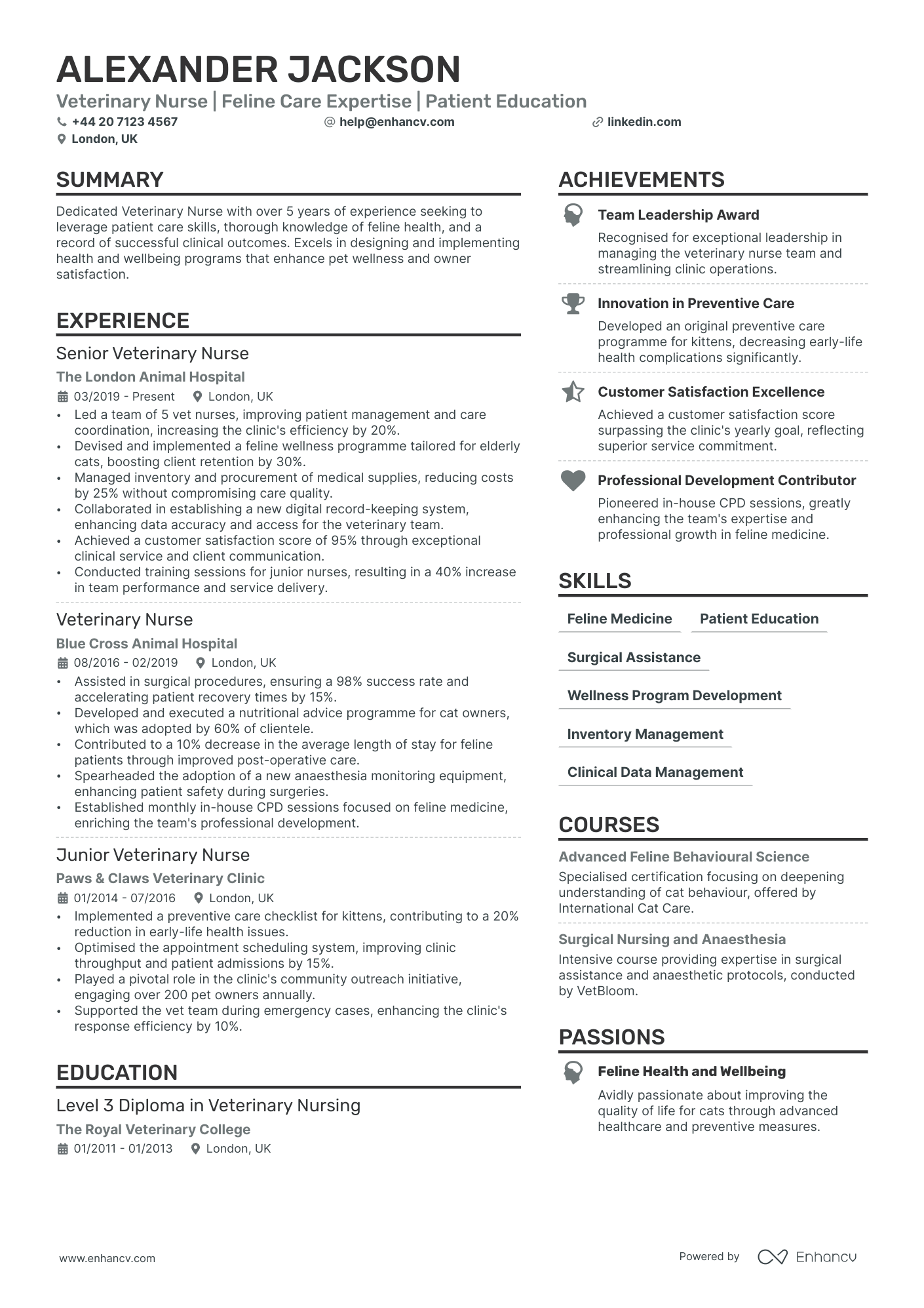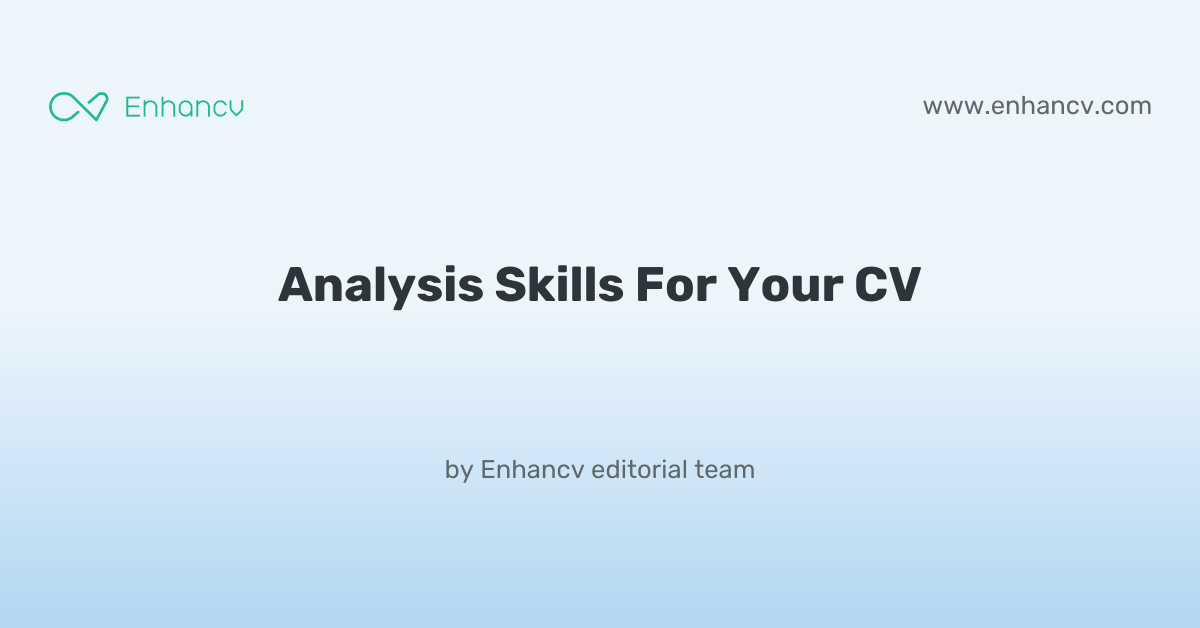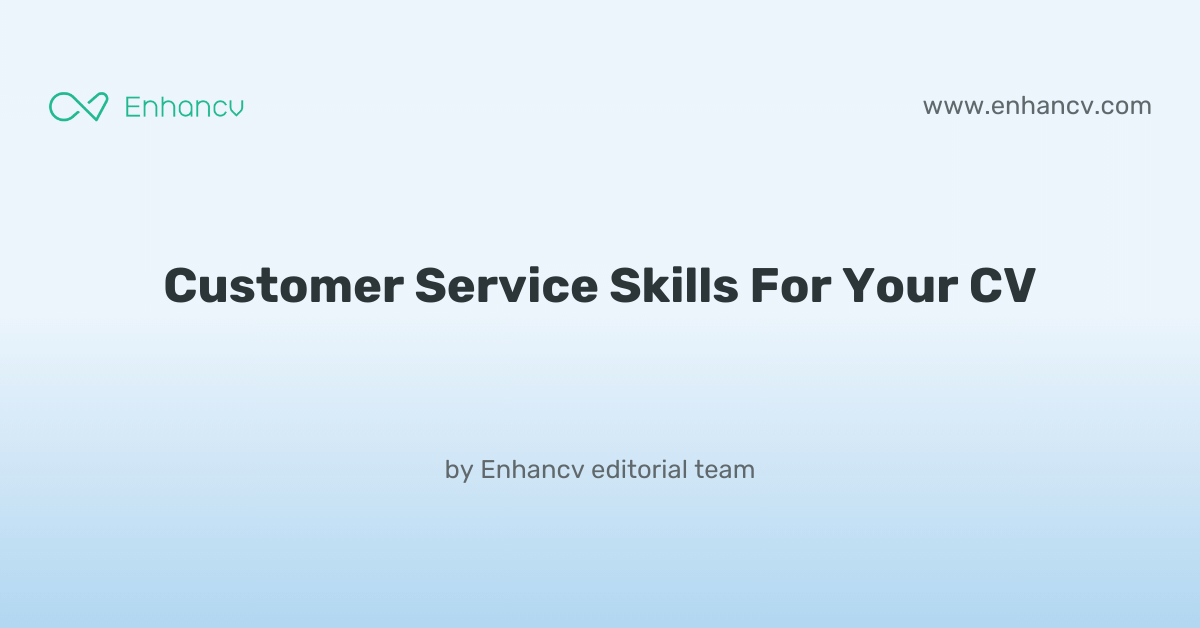Crafting a CV that effectively highlights your diverse range of skills and experiences can be a daunting challenge for a veterinary nurse. Our guide provides tailored tips and examples to help you structure your accomplishments and qualifications in a compelling way that stands out to potential employers.
- Answer job requirements with your veterinary nurse CV and experience;
- Curate your academic background and certificates, following industry-leading CV examples;
- Select from +10 niche skills to match the ideal candidate profile
- Write a more succinct experience section that consists of all the right details.
Do you need more specific insights into writing your veterinary nurse CV? Our guides focus on unique insights for each individual role:
Structuring your veterinary nurse CV layout: four factors to keep in mind
There are plenty of best practices out there for your CV layout and design. At the end of the day, a clear format and concise CV message should be your top priority. Use your CV design to enhance separate sections, bringing them to the forefront of recruiters' attention. At the same time, you can write content that:- Follows the reverse chronological order in the experience section by first listing your most recent jobs;
- Incorporates your contact information in the header, but do skip out on the CV photo for roles in the UK;
- Is spotlighted in the most important sections of your CV, e.g. the summary or objective, experience, education, etc. to show just how you meet the job requirements;
- Is no longer than two-pages. Often, the one-page format can be optimal for your veterinary nurse CV.
Before submitting your CV, you may wonder whether to export it in Doc or PDF. With the PDF format, your information and layout stay intact. This is quite useful when your CV is assessed by the Applicant Tracker System (or the ATS) . The ATS is a software that scans your profile for all relevant information and can easily understand latest study on the ATS , which looks at your CV columns, design, and so much more.
PRO TIP
Use bold or italics sparingly to draw attention to key points, such as job titles, company names, or significant achievements. Overusing these formatting options can dilute their impact.
The top sections on a veterinary nurse CV
- Qualifications and Registration details the veterinary nurse's formal education and credentials necessary for the position, showing they are qualified to practise.
- Clinical Skills and Competencies highlights the practical abilities and specific techniques the veterinary nurse is skilled at, important for hands-on animal care.
- Work Experience outlines the candidate's previous roles and responsibilities, providing insight into their readiness for the job at hand.
- Professional Development showcases continuous learning and specialisation, demonstrating the candidate's commitment to staying current in the field.
- References offer confirmation of the veterinary nurse's competencies and character from reliable sources in the industry.
What recruiters value on your CV:
- Highlight your qualifications and certifications specific to veterinary nursing, such as a Level 3 Diploma in Veterinary Nursing or a related degree, to demonstrate your formal training and expertise in the field.
- Detail your hands-on experience with animals, including volunteer work or placements, to show your practical skills and dedication to animal care.
- Emphasise your proficiency in veterinary software and equipment, as familiarity with modern technology is essential for efficient practice within a veterinary clinic.
- Include instances of effective communication skills, both with pet owners and in a team, since clear dialogue is vital in providing excellent care and support to animals and their owners.
- Document your ability to handle stressful situations and emotional resilience, which are crucial traits for managing emergencies and the pressures of veterinary nursing.
Recommended reads:
What information should you include in your veterinary nurse CV header?
The CV header is potentially the section that recruiters would refer to the most, as it should include your:
- Contact details - your professional (non-work) email address and phone number;
- Professional photograph - if you're applying hinting at the value you bring as a professional.
Many professionals often struggle with writing their veterinary nurse CV headline. That's why in the next section of this guide, we've curated examples of how you can optimise this space to pass any form of assessment.
Examples of good CV headlines for veterinary nurse:
- Head Veterinary Nurse | Surgical Expertise | Anaesthesia Specialist | CertVN ECC | 10 Years Experience
- Registered Veterinary Nurse | Inpatient Care | Diagnostic Imaging | NVQ Level 3 Dip | 5+ Years' Service
- Senior Vet Nurse | ECC Passion | Leadership in Practice | RVN | 8 Years Veterinary Nursing
- Experienced Vet Nurse | Feline Friendly | Dentistry Enthusiast | Advanced VN Diploma | 12 Years Dedicated Care
- Junior Vet Nurse | Small Animal Focus | Compassionate Care | Currently Enrolled in VN Training
- Lead Theatre Nurse | Orthopaedic Experience | Team Management | BSc (Hons) Vet Nursing | 7 Years Expertise
Choosing your opening statement: a veterinary nurse CV summary or objective
At the top one third of your CV, you have the chance to make a more personable impression on recruiters by selecting between:
- Summary - or those three to five sentences that you use to show your greatest achievements. Use the CV summary if you happen to have plenty of relevant experience and wish to highlight your greatest successes;
- Objective - provides you with up to five sentences to state your professional aims and mission in the company you're applying for
CV summaries for a veterinary nurse job:
- With over 5 years of hands-on experience in a bustling veterinary hospital, I have honed my skills in providing exceptional care to a diverse range of small animals. My proficiency in surgical assistance, anesthetic monitoring, and emergency response has been recognised through the hospital’s Excellence in Nursing Award. My adeptness at patient care and passion for animal welfare have defined my career thus far.
- Coming from a 6-year career in human nursing, I am eager to transfer my extensive knowledge of clinical patient care, patient assessment, and medical team collaboration into the veterinary nursing field. My dedication to health and compassionate patient interaction will enhance my ability to provide high-level care in a veterinary setting.
- As a seasoned pharmaceutical professional with over 7 years of experience, my transition into veterinary nursing is fueled by a profound respect for animal care and a strong foundation in medication administration and client education. I am adept at applying my skills in a fast-paced veterinary practice, ensuring both animal well-being and owner peace of mind.
- An accomplished veterinary nurse with a decade of experience in delivering complex nursing care and leading a team of junior nurses at a prominent animal clinic. Specialised in pre-operative preparation, post-operative care and adept in utilising the latest veterinary health technologies. I take pride in having raised the clinic's patient satisfaction rate by 20% through implementing novel pain management protocols.
- Seeking to enter the veterinary nursing profession with a fresh perspective and a Bachelor's degree in Animal Science. Eager to apply learned theories in real-world situations and to develop hands-on skills through rigorous training and mentorship. Objective: to grow into a proficient veterinary nurse who contributes positively to animal health and supports the veterinary team with dedication.
- As a recent graduate of Veterinary Nursing, I am enthusiastic about starting my journey in a dynamic practice and bringing my strong academic foundation to provide excellent care. Aiming to leverage my knowledge of animal physiology, pharmacology, and compassionate communication to become an integral part of a veterinary clinic that prioritizes high-standard animal healthcare.
Narrating the details of your veterinary nurse CV experience section
Perhaps you've heard it time and time again, but, how you present your experience is what matters the most. Your CV experience section - that details your work history alongside your accomplishments - is the space to spotlight your unqiue expertise and talents. So, avoid solely listing your responsibilities, but instead:
- adverts' keywords and integrate those in your experience section;
- Use your CV to detail how you've been promoted in the past by including experience in the reverse chronological order.
Before you start writing your veterinary nurse CV experience section, dive into some industry-leading examples on how to structure your bullets.
Best practices for your CV's work experience section
- Outlined comprehensive patient histories, detailing case specifics, medications, and care provided during each shift to ensure continuity in animal healthcare.
- Implemented veterinary treatment plans for a variety of species, which included administering medications, vaccines, and performing wound care according to vet instructions.
- Maintained precise anaesthetic logs for surgical procedures, diligently monitoring patient vital signs and providing supportive care pre and post-operation.
- Utilised advanced nursing skills, such as placing IV catheters, collecting blood samples, and performing laboratory tests, to assist the veterinary team in diagnostics.
- Delivered compassionate client communication, offering detailed explanations of treatment plans, home care instructions, and updates on patient progress.
- Engaged in inventory management, keeping track of medical supplies and equipment, ensuring that all necessary items were readily available and restocking as needed.
- Coordinated with veterinary and support staff to manage appointment schedules, maximise efficiency in patient flow, and ensure thorough, timely service.
- Participated in continuing education to remain up-to-date with current veterinary practices, emerging medical technologies, and changes in animal welfare legislation.
- Oversaw and trained junior staff, sharing expertise and promoting best practices in animal care, patient safety, and clinic cleanliness standards.
- Spearheaded a preventative care program for over 600 small animals, significantly reducing the incidence of common diseases by 20%.
- Implemented a digital record-keeping system, streamlining the patient intake process and improving the efficiency of medical record retrieval by 35%.
- Trained and supervised a team of 4 new veterinary assistants, resulting in enhanced teamwork and a 15% improvement in patient care response times.
- Developed a robust emergency response protocol that effectively reduced critical care response time by 25%.
- Facilitated an in-house professional development program, which uplifted staff competencies and improved service quality scores by 18%.
- Contributed to business growth through community engagement initiatives, such as free vaccination drives that led to a 40% increase in clinic patronage.
- Orchestrated the implementation of a telehealth consultation service, allowing for a 30% increase in daily patient consultations during the COVID-19 pandemic.
- Directed the transition to low-stress handling techniques, promoting animal welfare and reducing patient sedation needs by 10%.
- Instituted a cross-functional training program, which has empowered the nursing staff with foundational veterinary surgical skills, boosting clinic efficiency.
- Delivered strong leadership in post-operative care, achieving a post-surgery recovery success rate of 95%.
- Engaged in community outreach, educating over 1,000 pet owners on animal nutrition and preventive care.
- Collaborated on a research project on feline diabetes management that served as a basis for the clinic's new treatment protocols.
- Masterminded a nutrition optimization program that was adopted by 90% of our clientele and significantly improved the health of pets suffering from obesity.
- Cultivated a partnership with a local animal shelter, leading to the successful rehabilitation and adoption of over 200 animals.
- Overhauled the inventory management system for pharmaceuticals, enhancing the accuracy of stock levels and reducing wastage by 15%.
- Instrumental in developing an allergy assessment protocol that increased accurate diagnosis and successful treatments by 22%.
- Managed a fund-raising event for the clinic's animal welfare fund, which raised over £10,000 to support the clinic's pro bono cases.
- Established successful relationships with pharmaceutical reps, resulting in cost savings of 20% through strategic bulk purchasing.
- Pioneered an infection control initiative that led to a 50% reduction in post-surgical infection rates.
- Optimized the surgical prep process, which led to a 15% increase in the number of surgeries performed daily.
- Enhanced client communication by developing easy-to-understand aftercare literature, increasing compliance with post-treatment instructions.
- Played a vital role in achieving the clinic's Royal College of Veterinary Surgeons (RCVS) accreditation through rigorous standardization of procedures.
- Organized a successful staff rotation system that decreased overtime by 20% and increased staff satisfaction.
- Championed a dental health campaign, directly contributing to a 30% uptick in dental procedure bookings.
Lacking professional expertise: how to write your CV to highlight your best talents
Don't count on your lucky stars when you're applying for a role, where you happen to have less (or almost none) professional experience. Recruiters sometimes do hire inexperienced candidates if they're able to present their unique value from the get-go. So, instead of opting for the traditional, CV experience section:
- List any applicable expertise you happen to have - no matter if it's a part-time job, internship, or volunteer work. This would hint to recruiters that your profile is relevant;
- Focus your CV on your transferrable skills or talents you've obtained thanks to your whole life and work experience. In effect, you'll be spotlighting your value as a candidate;
- Separate more space for your applicable academic background and certificates to show you have the technical know-how;
- Ensure that within your objective, you've defined why you'll like the job and how you'll be the perfect match for it. Always ensure you've tailored your CV to individual applications.
Looking for more good examples for your first job? We'll show you how other candidates, with less professional experience, have created their job-winning CVs.
Recommended reads:
PRO TIP
Include examples of how you adapted to new tools, environments, or work cultures, showing your flexibility.
Key veterinary nurse CV skills: what are hard skills and soft skills
Let's kick off with the basics. You know that you have to include key job requirements or skills across your CV. For starters, take individual skills from the job description and copy-paste them into your CV, when relevant. Doing so, you'll ensure you have the correct skill spelling and also pass the Applicant Tracker System (ATS) assessment. There are two types of skills you'll need to include on your CV:
- Hard skills - technical abilities that are best defined by your certificates, education, and experience. You could also use the dedicated skills section to list between ten and twelve technologies you're apt at using that match the job requirements.
- Soft skills - your personal traits and interpersonal communication skills that are a bit harder to quantify. Use various CV sections, e.g. summary, strengths, experience, to shine a spotlight on your workspace achievements, thanks to using particular soft skills.
Remember that your job-winning CV should balance both your hard and soft skills to prove your technical background, while spotlighting your personality.
Top skills for your veterinary nurse CV:
Animal Care
Veterinary Medicine Knowledge
Diagnostic Imaging
Surgical Assistance
Phlebotomy
Anesthesia Monitoring
Medication Administration
Laboratory Testing
Patient Monitoring
Emergency Response
Compassion
Communication
Attention to Detail
Teamwork
Problem-Solving
Stress Management
Time Management
Adaptability
Empathy
Interpersonal Skills
PRO TIP
If there's a noticeable gap in your skillset for the role you're applying for, mention any steps you're taking to acquire these skills, such as online courses or self-study.
Listing your university education and certificates on your veterinary nurse CV
The best proof of your technical capabilities would be your education and certifications sections. Your education should list all of your relevant university degrees, followed up by their start and completion dates. Make sure to also include the name of the university/-ies you graduated from. If you happen to have less professional experience (or you deem it would be impressive and relevant to your application), spotlight in the education section:
- that you were awarded a "First" degree;
- industry-specific coursework and projects;
- extracurricular clubs, societies, and activities.
When selecting your certificates, first ask yourself how applicable they'd be to the role. Ater your initial assessment, write the certificate and institution name. Don't miss out on including the completion date. In the below panel, we've curated relevant examples of industry-leading certificates.
PRO TIP
Order your skills based on the relevance to the role you're applying for, ensuring the most pertinent skills catch the employer's attention first.
Recommended reads:
Key takeaways
Your successful job application depends on how you well you have aligned your veterinary nurse CV to the job description and portrayed your best skills and traits. Make sure to:
- Select your CV format, so that it ensures your experience is easy to read and understand;
- Include your professional contact details and a link to your portfolio, so that recruiters can easily get in touch with you and preview your work;
- Write a CV summary if you happen to have more relevant professional experience. Meanwhile, use the objective to showcase your career dreams and ambitions;
- In your CV experience section bullets, back up your individual skills and responsibilities with tangible achievements;
- Have a healthy balance between hard and soft skills to answer the job requirements and hint at your unique professional value.
